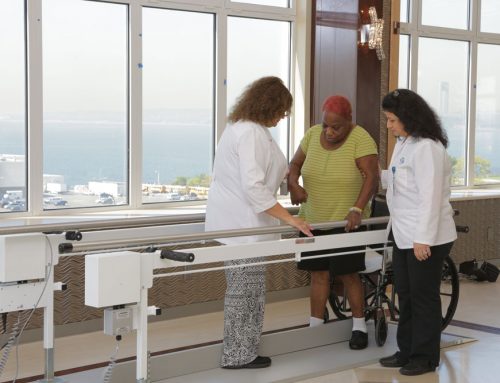Bed sores go by many names, including pressure ulcers or sores, pressure injuries, or decubitus ulcers. They occur when blood flow is cut off from the skin for more than 2 hours. The result is a warm, red, painful spot that can become an infected, open sore if left untreated. They most commonly occur among those who are bedridden, immobile, or unconscious since these individuals can’t move without assistance.
Luckily, these unsightly sores can be treated and even cured in most cases. Once a bed sore is discovered, it’s best to speak to your doctor immediately. A medical professional will be able to diagnose and recommend the medical care and the best treatment option to heal your bed sores. For more information on this topic, take a look at the following frequently asked questions.

What Is the Fastest Way To Heal Bed Sores
The treatment can vary, depending on the severity of the issue. For minor sores, your doctor may recommend foam pads or pillows to reduce pressure on the area. Positioning yourself in ways to avoid putting weight on the sore is another possible option.
Altering your position frequently and even sitting up instead of laying down could also be recommended to heal bed sores. Even an improved diet and better hygiene may be added to the recovery list.
For sores with broken skin, there could be more serious treatments available. These could include proper wound care and cleaning, removal of infected tissue, and special dressings. You may also require skin grafts and antibiotics or other medicines to help heal the sores.
Are they curable?
In most cases bed sores are curable. How quickly they can be cured depends on how severe the sores are and how long they’ve been left untreated. Minor sores may be healed in a matter of days. Open, infected sores could take months or even years to be cured.
There could also be some complications that occur from pressure sores. Those with nerve damage who can’t feel pain could develop cellulitis. This causes skin and soft tissue infections, which results in warmth and inflammation.
Bone and joint infections are also possible complications that slow the healing process. There are also rare cases of squamous cell carcinoma in long-term, non-healing wounds, which could be life-threatening for some individuals.
How to prevent complications
Preventing bed sores and any resulting complications from occurring is easier than you may think. It only requires a few changes to keep sores from developing or pre-existing ones from getting worse.
Repositioning often is the first and most important step. Shifting your weight once each hour can prevent sores. Those with upper body strength may be able to shift themselves. If you can’t do this on your own, ask for help.
Using a special mattress or pillows on your bed can also help relieve pressure and ensure proper positioning. Using an adjustable bed or specialty wheelchair also helps you shift or tilt to reduce pressure.
Keeping your skin clean and dry also prevents complications. Barrier creams help protect the skin from moisture, including urine and stool. Bedding and clothing changes are also a must to prevent these sores.
This content comprises informative and educational resources only and can not be considered as a substitute for professional health or medical guidance. Reliance on any information provided in this article is solely at your own risk. If you have any inquiries or apprehensions about your medical condition or health goals, talk with a licensed physician or healthcare provider.






Leave A Comment